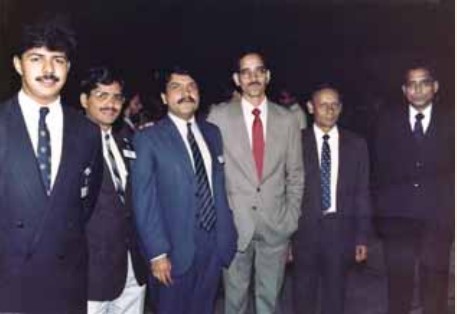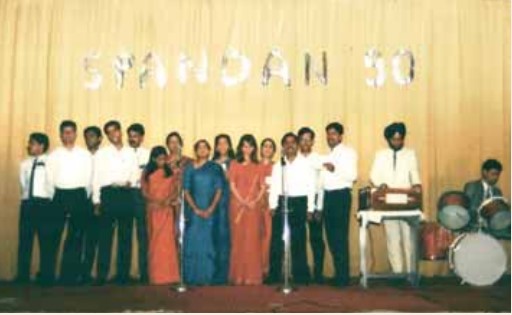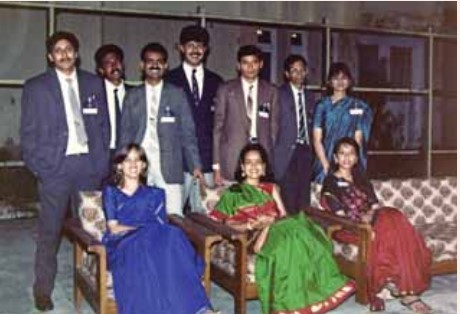THERE were many attachments during the 56th Foundation Course (FC). While we were in the midst of villageattachments spread over northern India, we heard that VP Singh had resigned and Chandra Shekhar had become the Prime Minister of India. This event heralded the adoption of the Mandal Commission Report that had a permanent bearing on the composition of the civil services in India.
Looked at thus, the 56th Foundation Course at the Lal Bahadur Shastri National Academy of Administration (LBSNAA) in 1990-with 20 MBAs, above 40 engineers, around 10 doctors, to name a few professional degrees, spread over 106 IAS, 73 IPS, 60 IFoS, 9 IFS, 5 IAAS, 2 IRS, 14 IRTS and 15 IPoS probationers-was a watershed batch in the civil services.

It was not raining on August 20, 1990, when BN Yugandhar, Director of LBSNAA, handed over the varied crowd (with around 30 lady probationers) in the SPH to RS Dalal, IPS, the Course Director, and Rana, the PT instructor, to instil the OLQs (Officer Like Qualities) in the young crowd with a punishing schedule. As batchmate Pankaj Jain notes, what strange tricks the mind plays when all that we remember, in fond detail, was how young and energetic we were; and how trivial were the miseries of intense conditioning of body and mind in and around the very evocative ‘Happy Valley’. As the talkative piece from the House Journal Society (HJS) recounts, while miseries are ephemeral, the memories of 80-odd days are diverse and permanently etched in our minds.The 25 intervening years have only reconfirmed the mutual appreciation we have for each other. And as we reassemble at the much improved environs of LBSNAA on August 28-29, 2015, we may find that we retain our mental make-ups and epigenetic traits, even though most of us would perhaps find the slopes of LBSNAA now rather taxing. Some in the batch are no longer in the government but are doing well in the fields they have chosen. We lost one friend while serving in Afghanistan (see obituary).
The year 1990 was a watershed in other ways too. Nelson Mandela came out after 27 years in prison and the Berlin Wall had come down in 1989. India was passing through the worst fiscal crisis, heralding the opening up of the economy in 1991 and the polarising Babri Masjid event took place in 1992. In sports, Ivan Lendl beat Stefan Edberg and Steffi Graf won the 78th Australian Open and Australia beat Pakistan to win the Cricket World Series cup. It was the year when the original Aashiqui was released. The PRA and Total Literacy Mission were in vogue. There were no telephones even in our rooms. It took an intense discussion to get a TV cable connection in the lounges in the hostel. These deprivations, as recounted vividly by Sumita Misra Singh, compared to the omnipresent devices now, appear so refreshingly medieval! It enabled us to mix with each other and forge friendships for the lifetime.

Those who may claim that it is all simple, stupid nostalgia, I would tell them that they haven’t really chewed the cud. Even our simplest sensations are, arguably, as much ordained as trained. There is often a head wind, and while our mind flies at supersonic speed, it is at ground speed that we ponder over ceaseless details of life; when images and feelings and emotions coalesce, forcing us to be still and notice all that was, is, and going to be. We all have our personal treasures of memories, bitter and sweet, that can be relished by those who were there with us then.
We succeeded in getting articles by some batchmates. Sumita Misra Singh, in her radiant lines, beautifully captures the life that was for us in 56 FC. Samir Sinha, the born forest officer that he is, reminds us of our role in nation-building. The chatty piece of HJS engagingly and irreverently describes the days that were. Pankaj Jain, the pragmatist, has more philosophical reminiscences that link the past with the present. Raja Sekhar presciently underscores the fact that while we pave the way for change, we struggle to grapple with the change, too.

Then, there are photos to top it all. It would take many pages to transcribe what is etched in our minds, but for space constraints.
When we reassemble, we meet each other with warmth and bear hugs and resume our conversations as if we went our ways only yesterday. Each one of us has a wealth of accomplishments and we are justifiably proud of them. It would be impossible to catalogue them and to categorise 56 FC, except to say that we were young, very happy together, dissecting each other and the universe, and proactive. From college students, we were painstakingly groomed into officers in the LBSNAA.

Now that we have more or less a decade of government service before us, it is natural to look behind as well as beyond, mindful of what is happening to us in the present. Long live the roomaniyat, and with it, as the body ages, the joie de vivre. Hence, the following lines:
Growing older in a subjective way
Shouldn’t it worry us when rains come late Few bursts of water, and languid clouds in its wake? It does, even this much, year after million years Unlike us, we grow feebler, much before it’s pretty clear.
‘There is a Russian Orthodox Church in the Antarctica
where a lonely priest
Preaches love relation between us, He and the snowfields.’
Come on, try my hamstrings, still strong and elastic at
this age
With white sparks on chest, eyebrows and deep lines on the face.
Mind jaded, yes, spirits atavistic spirits, alive:
preparing for the imaginary Act
The limbs twitch and ache; relishing past sprints till
the next
Time it rains copiously, ominously heralding the season’s waning end.
Atul Kumar Tiwari is Principal Secretary, Health & Family Welfare Department, Karnataka Government. He was also the Secretary of the House Journal Society during Phase 1 and 2 of IAS training of the 1990 batch.











































